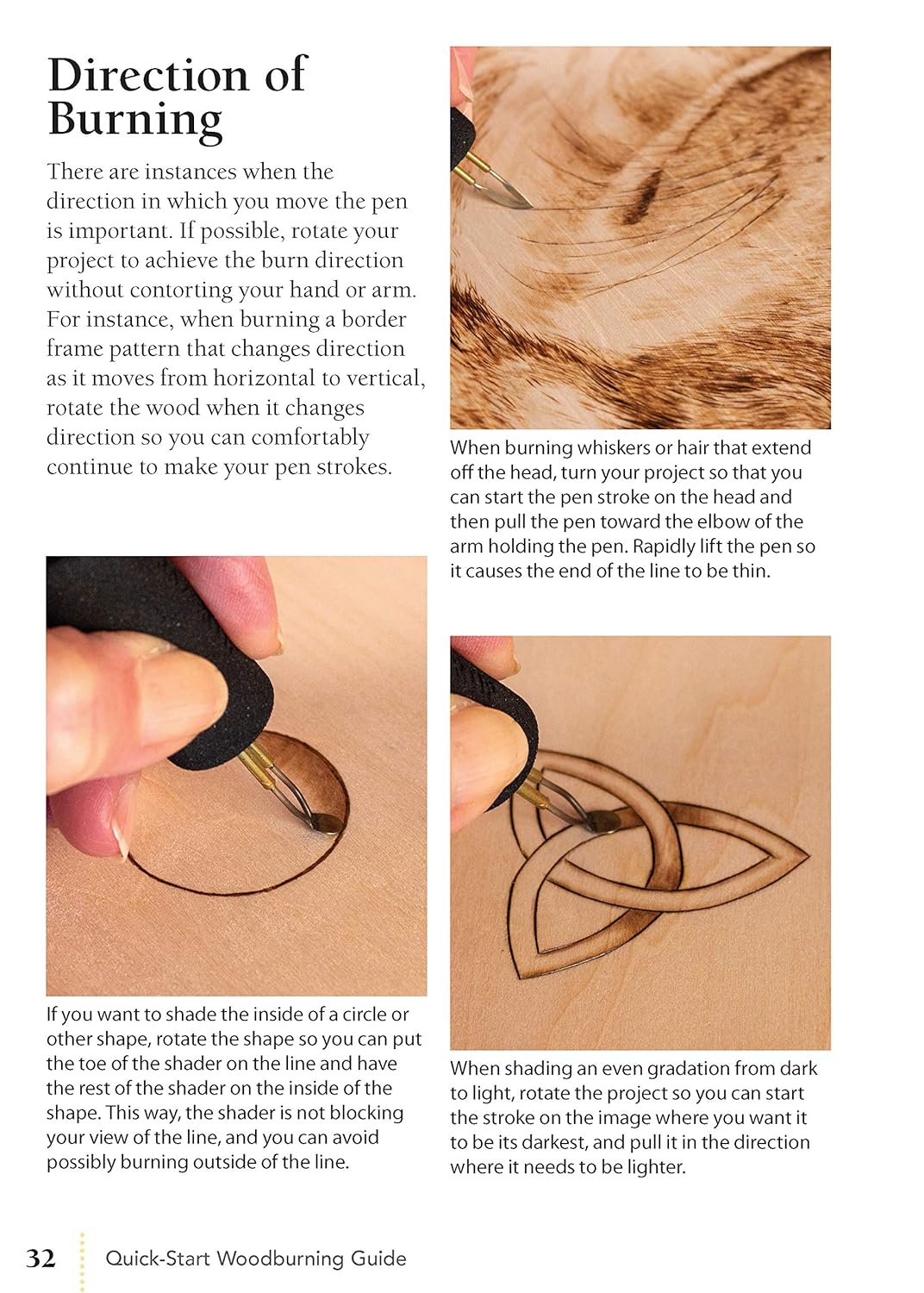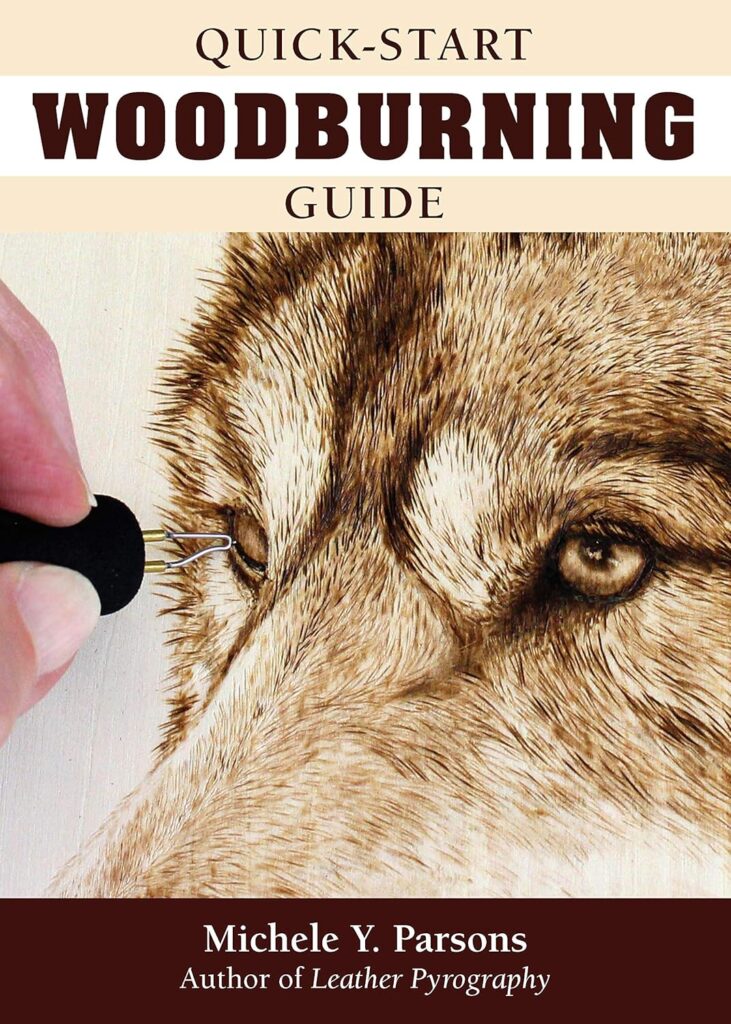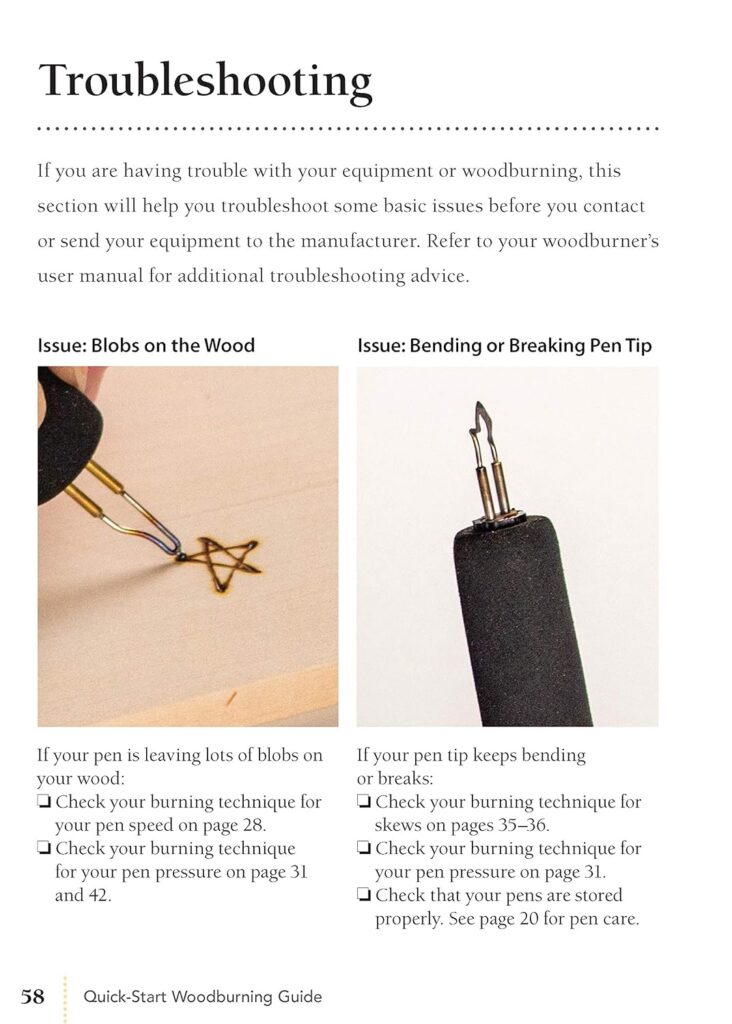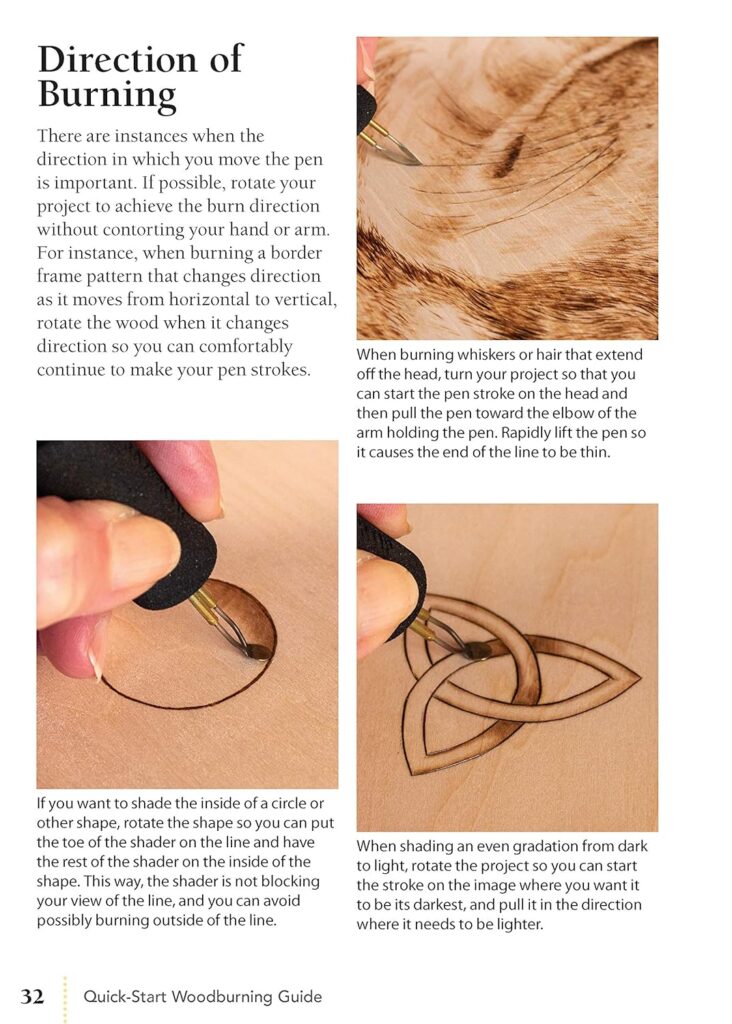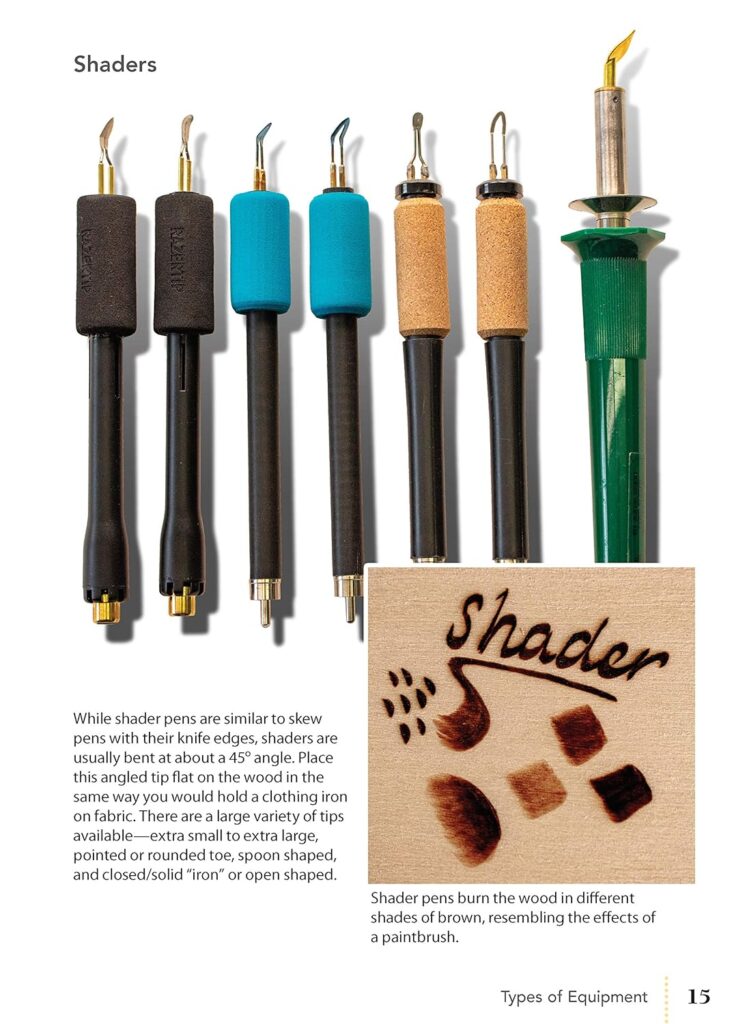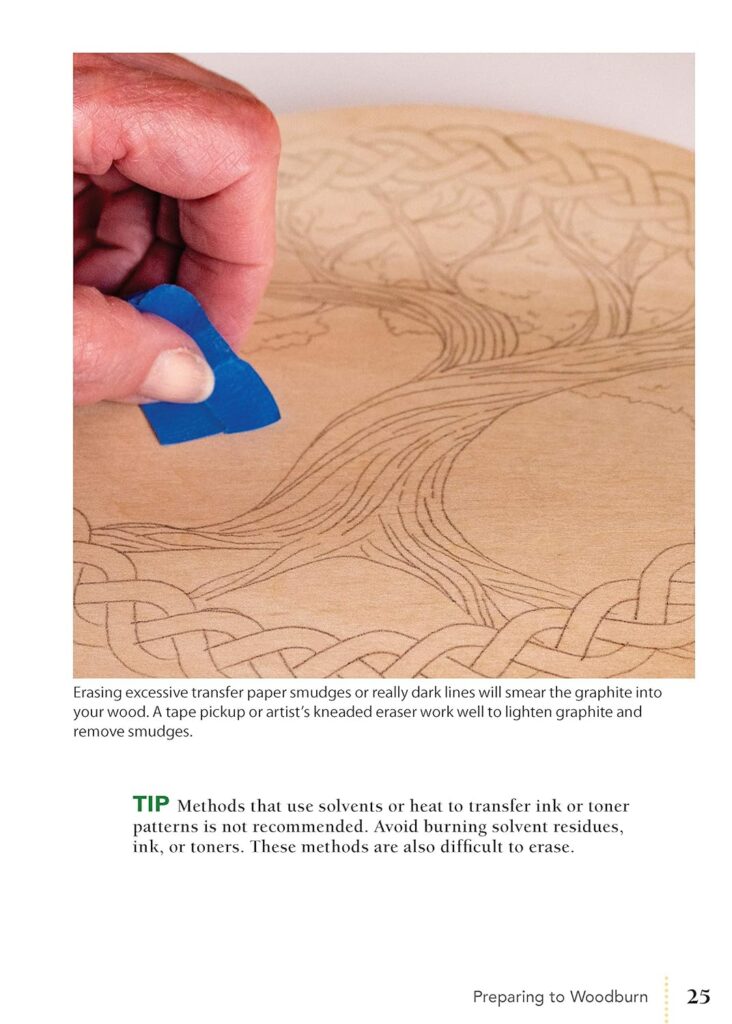Is there anything quite like the smell of burning wood to remind us of campfires and cozy log cabins? It’s this familiar, smokey scent that beckons us into the world of pyrography—a charming blend of art and craft that feels both rustic and refined. So, if woodburning had piqued our curiosity, what could be the perfect companion to help us delve headlong into this art form? Let’s take a juicy gander at the “Quick-Start Woodburning Guide” and see how it might just be the ticket.
This image is property of Amazon.com.
A Handy Companion That Fits Just Right
First things first, that’s quite the mouthful of a name for a product, isn’t it? “Quick-Start Woodburning Guide (Fox Chapel Publishing) Beginner-Friendly Pocket-Size Handbook to Getting Started in Pyrography with Basics on Equipment, Techniques, Pen Types, Safety, Finishing, & More Paperback – September 7, 2020” could make anyone’s head spin faster than a carnival teacup ride, but this title answers almost every question we might have about its contents before we’ve even cracked the cover.
We all know that life’s complicated enough, so having something pocket-sized that promises to make our foray into pyrography less daunting is a comfort. Think of it like a new friend who is always there, waiting patiently in our bag, whispering encouragement and not-terrible advice on tools and techniques.
This image is property of Amazon.com.
Unwrapping the Essentials
Equipment – From Pen Types to Power Settings
Jumping into a new craft can sometimes feel like we’re being asked to assemble Ikea furniture without instructions. But fear not, for this guide steps in like our knowledgeable sibling. It aims to demystify equipment ranging from wire-nibs to solid-tip pens. Whether we’re pondering over whether an adjustable-temperature model is worth the splurge or contemplating what wood types work best for beginner projects, this book provides surprisingly sage insights to help us make those choices without feeling overwhelmed or misled.
Techniques – Building a Skill Set, One Burn at a Time
Just as Rome wasn’t built in a day, neither will our skills in pyrography be, but wouldn’t it be lovely to have some handrails along the way? In this handbook, much emphasis is placed on introducing us to foundational techniques. It gently nudges us beyond just basic strokes, and invites us to experiment with shading effects and textures—the very things that bring wood pieces to life like characters springing from the page of a well-loved novel.
Here’s a handy table to remind us without having to sift through the breadcrumbs of memory:
| Technique | What’s Involved |
|---|---|
| Linework | Simple straight and curved lines |
| Shading | Gradients using pen pressure and speed |
| Textures | Creating effects like fur or feathers |
| Stippling | Techniques involving dots and dashes |
| Lettering | Turning alphabets into artistic elements |
Safety – Because Burnt Fingers Are No Fun
In the realm of pyrography, the importance of safety cannot be overstated. This guide dedicates perhaps not as much space as our mothers would prefer, but enough to remind us to respect the heated tools we wield. Think of it as your no-nonsense friend who insists—no, demands—that we wear oven mitts when handling a hot dish. It’s all about reducing risks, like ensuring proper ventilation, using heat-resistant surfaces, and never, ever leaving a heated pen unattended.
Finishing Touches – The Art of Turning Good Into Great
What separates the spectacular from the merely satisfactory can often be boiled down to finishing touches. This petite guide has not overlooked the artist in their final act of completion. It offers us a peek into sealing and preserving our artworks—be it with oils, varnishes, or waxes—a thoughtful suggestion that adds that extra polish and doesn’t let our hard work succumb to time and elements.
This image is property of Amazon.com.
Why We Might Actually Listen
The Credibility Factor
Let’s not be too naive; there are books that make fantastical promises yet offer as much value as leftover fish and chips past their best. Here, though, the “Quick-Start Woodburning Guide” is published by Fox Chapel Publishing, a house renowned for its crafts and DIY publications. When those folks talk woodburning, we’d wager it’s worth tuning our ears—unless of course we fancy nodding along to charlatans peddling overpriced snake oil instead.
A Cozy, Beginner-Friendly Language
Not everyone embosses their speech with grant-worthy vocabulary, and thankfully, this guide doesn’t try to bewilder us with sentences that make James Joyce seem succinct. Its charm is in its friendly, conversational tone—much like receiving tips from a good friend who awaits us at our favorite cafe, coffee ready and limitless patience on standby.
Pocket-Size Perfection
We’ve often lamented that books come in sizes either more at home as a doorstop or too fragile, like a teacup chihuahua caught in a breeze. This guide’s pocket-size nature, however, means portability without compromising readability. A perfect companion for taking to the park, coffee shop, or shed to huddle over our blossoming craft projects.
A Good Gift for the Creatively Curious
If we find ourselves surrounded by friends or family members whose creativity is like an itch waiting to be scratched, this little handbook makes for a delightful gift. It isn’t aggressively aspirational to the point of terrifying the recipient, nor does it limit potential by pigeonholing them into only basics. Instead, it feels very much like planting a seed, which will, with the right care, grow into a bewitching bloom of artistic expression.
This image is property of Amazon.com.
Where Does It Shine and Where Might It Dim
The Pros
- Beginner-Friendly: Ideal for those just starting, gently handholding us through the fundamentals.
- Convenient Size: Easily carried and referenced on the go.
- Valuable Techniques: Covers everything from basic linework to more complex shading and textures.
- Practical Safety Tips: Necessary consideration for any art involving heat.
The Cons
- Limited Advanced Techniques: More seasoned artists may find it lacking in advanced challenges.
- Minimal Illustrations: While it paints a rich picture in text, some of us visual learners might have hoped for more illustrative guidance.
- Robust Index Missing: If we fancy jumping directly to a topic or troubleshooting, a more detailed index could be missed dearly.
This image is property of Amazon.com.
In Conclusion
If you’ve made it this far, you might be thinking, “Is this our new trusty pyrography guide?” If we wish to embark on a journey that kindles our smoldering interest in this art while keeping the experience lightweight yet substantial, this little guide certainly punches above its weight.
Ultimately, it serves not just as a reference, but as a trusty moral companion that holds your hand reassuringly while prodding you to push that creative envelope just a tad further. Who knows, perhaps this book might lead us down a path where each charred stroke across wood tells not just our story, but ignites stories for others too.
Disclosure: As an Amazon Associate, I earn from qualifying purchases.

